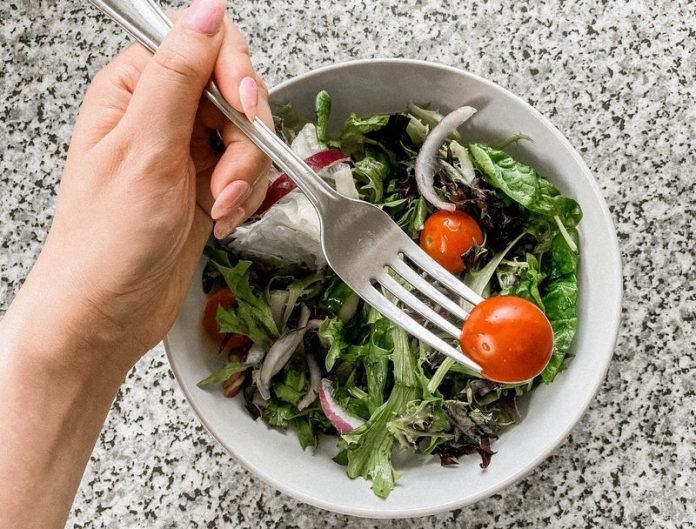
In a new study from King’s and Harvard Medical School, researchers found that people with the highest quality diet were around 10% less likely to develop COVID-19 than those with the lowest quality diet, and 40% less likely to fall severely ill.
They examined data from nearly 600,000 ZOE COVID Study app contributors.
Participants completed a survey about the food they ate during Feb 2020 (pre-pandemic), making it the largest study in this space. 19% of these contributors contracted COVID-19.
Rather than looking at specific foods or nutrients, the survey was designed to look at broader dietary patterns which are reflective of how people actually eat.
The survey produced a ‘diet quality score’ that reflected the overall merit of each person’s diet.
Diets with high-quality scores were found to contain plant-based foods such as fruits, vegetables and whole grains, as well as oily fish, less processed foods and refined carbohydrates.
A low diet quality score is associated with diets high in ultra-processed foods and low amounts of plant-based foods.
The researchers found that people who ate the highest quality diet were around 10% less likely to develop COVID-19 than those with the least nutritious diet and 40% less likely to become severely ill if they developed COVID-19.
The link between diet quality and COVID-19 risk still remained after accounting for all potential confounding factors.
The impact of diet was amplified by individual life situations, with people living in low-income neighborhoods and having the lowest quality diet being around 25% more at risk from COVID-19 than people in more affluent communities who were eating in the same way.
Based on these results, the researchers estimate that nearly a quarter of COVID-19 cases could have been prevented if these differences in diet quality and socioeconomic status had not existed.
The findings suggest that people who eat higher-quality diets (with low levels of ultra-processed foods) have a healthier collection of microbes in their guts, which is linked to better health.
The team says people don’t have to go vegan, but getting more diverse plants on their plates is a great way to boost the health of the gut microbiome, improve their immunity and overall health, and potentially reduce the risk from COVID-19.
If you care about COVID, please read studies about vitamin D and COVID-19: What you need to know and findings of new COVID vaccine guidance for the obese.
For more information about COVID and your health, please see recent studies about early use of this blood thinner drug may reduce COVID-19 death and results showing that COVID-related brain damage more likely in these people.
The study is published in Gut. One author of the study is Professor Tim Spector.
Copyright © 2021 Knowridge Science Report. All rights reserved.



